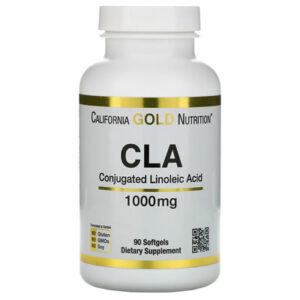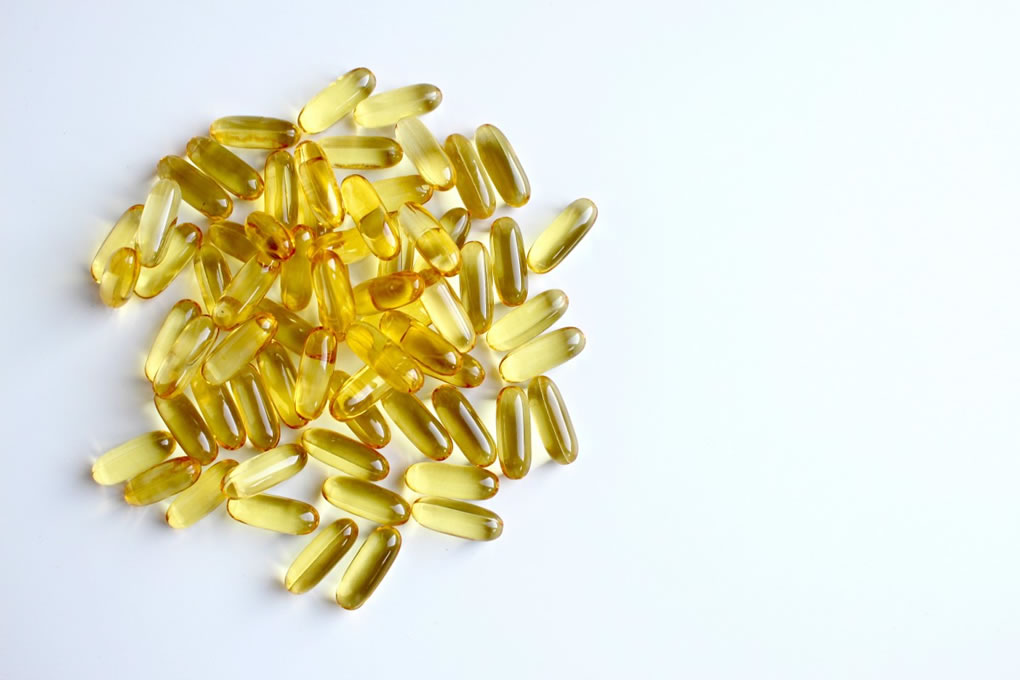Conjugated linoleic acid/CLA is essentially a type of trans fatty acid, but it is a natural form found in food. Unlike common synthetic trans fats, CLA has biological benefits, especially for weight loss products. ingredient.
Do you know conjugated linoleic acid benefits?
Some animal studies have pointed out that conjugated linoleic acid has many health benefits, including the prevention of cancer, diabetes, cardiovascular disease, elimination of body fats, and immune regulation. However, the application of these effects on humans is still controversial.
This difference comes from different forms and dosages, the crowd, and the duration of use, so it needs to be confirmed by more studies.
Table of Contents
- What is conjugated linoleic acid?
- What are the benefits recommended for conjugated linoleic acid/safflower seed oil?
- What are the side effects of conjugated linoleic acid (CLA)?
- Where can I buy the best conjugated linoleic acid (CLA)?
What is conjugated linoleic acid?
Natural conjugated linoleic acid refers to a group of conjugated double bond polyunsaturated fatty acids (mainly in the form of c9, t11) formed by isomers of linoleic acid, mainly produced by ruminants such as cattle and sheep, Common products include beef and cheese.
The conjugated linoleic acid in general health foods is made of safflower seed oil or sunflower seed oil through chemical treatment (partial hydrogenation), mainly by the two isomers of c9, t11 and t10, c12 Mixed.
What are the benefits recommended for conjugated linoleic acid/safflower seed oil?
1. Cellulite
The most frequently discussed health issue for weight loss, most people think of it, nothing more than to maintain the appearance, enhance self-confidence and attractiveness.
Losing weight is nothing more than diet, exercise, drug intervention, and surgery. However, these methods have their own advantages and disadvantages. Coupled with factors such as unsustainability, side effects, and risks, it is really difficult to maintain slimness.
Some studies believe that conjugated linoleic acid can regulate lipid metabolism and reduce fat accumulation.
A systematic literature review and meta-analysis (including 7 studies, 974 participants) pointed out that compared with placebo, the intake of conjugated linoleic acid can produce a statistically significant weight loss effect, but the magnitude Not large, and not clinically relevant. (Therefore, there is still insufficient evidence to lose weight through conjugated linoleic acid).
Another comprehensive analysis also found that conjugated linoleic acid (whether sourced from supplements or food) does not help reduce fasting blood glucose and waist circumference.
2. hypertension
Hypertension is currently the most common symptom in health examinations. It is estimated that more than 70% of the population over 40 years old is a high-risk group suffering from hypertension.
The blood vessel wall is subject to pressure shock for a long time, which can easily cause vascular sclerosis, affect the blood supply of organs and tissues, and may induce cerebral heart and kidney disease (such as stroke, angina pectoris, aortic dissection, renal failure, etc.).
Animal studies have found that conjugated linoleic acid has a blood pressure-lowering effect. Note 5, may help prevent hypertension (the underlying mechanism is related to improving endothelial cells, promoting nitric oxide and arachidic acid production).
However, a meta-analysis (including 9 studies, 638 participants) pointed out that compared with placebo, conjugated linoleic acid has no significant effect on human blood pressure regulation (total change: systolic blood pressure -0.03 mm H, diastolic blood pressure 0.69 mm Hg).
3. Dyslipidemia
Dyslipidemia not only represents a series of imbalances in blood lipid parameters, but it is also a major risk factor for cardiovascular disease, diabetes, hypertension, stroke, and acute pancreatitis, with low-density cholesterol and total cholesterol being the most concerned.
It is estimated that the peak of dyslipidemia in men is usually between 30 and 39 years old (the prevalence rate is 48.2%), and that women are more common after the age of 60 (the prevalence rate is 46.3%).
A systematic literature review and meta-analysis (including 7 studies, 974 participants) pointed out that conjugated linoleic acid (whether the source is health products or food) has the effect of regulating blood lipids, especially reducing “density lipoprotein” Cholesterol is the most significant.
The underlying mechanism is related to inhibiting Apolipoprotein B (Apolipoprotein B) and increasing the clearance efficiency of low-density cholesterol.
4. Nonalcoholic fatty liver
Non-alcoholic fatty liver disease is the most common chronic liver disease, mainly related to excessive accumulation of large drops of triglycerides in liver cells (total weight exceeds 5% of liver weight). If left unchecked, it can be divided into fatty degeneration, Fatty hepatitis, cirrhosis, and hepatocellular carcinoma.
It is estimated that the prevalence of non-alcoholic fatty liver in the total population is about 20%-30%, and the number of obese and diabetic patients has increased to 70%-90%.
A small controlled study found that (for 8 weeks, 38 non-alcoholic fatty liver patients), compared with the control group, conjugated linoleic acid (CLA) with vitamin E and weight loss diet can further improve glycated hemoglobin (HbA1c), body fat, liver function (LDL/HDL ratio), blood lipid index (ALT/AST ratio) and oxidative stress.
What are the side effects of conjugated linoleic acid (CLA)?
From the current evidence, the conjugated linoleic acid ingested from the natural diet is more helpful to the human body (mainly in the form of cis-9, trans-11), and it has no side effects.
The CLA in healthy foods is mostly in the form of 10-trans and 12-cis. Some animal studies have pointed out that high doses may appear insulin resistance, fat metabolism disorders, increase C-reactive protein, and affect blood lipid index (lower good cholesterol) and other phenomena.
In addition, the possible side effects of conjugated linoleic acid include diarrhea, stomach pain, nausea, and flatulence.
Safety Precautions
Pregnant women, breastfeeding women, those with poor liver and kidney function, please be careful (please consult a pharmacist or physician before supplementing with health products).
Coagulation dysfunction, taking anticoagulants, and patients two weeks before surgery, please avoid the use of related CLA health products (because it may slow the speed of blood clotting and increase the risk of bleeding).
Where can I buy the best conjugated linoleic acid (CLA)?
In recent years, food safety problems in various countries have exploded, and it is not healthy but black-hearted products that everyone spends on. Therefore, European and American products with relatively strict quality control have become popular products.
And iHerb.com is a large-scale medical cosmetics e-commerce company in the United States. It has a high satisfaction rate of 97% in the evaluation of Google customers. It provides global home delivery so that you can buy it without risking buying fakes through purchasing high-quality health products.

